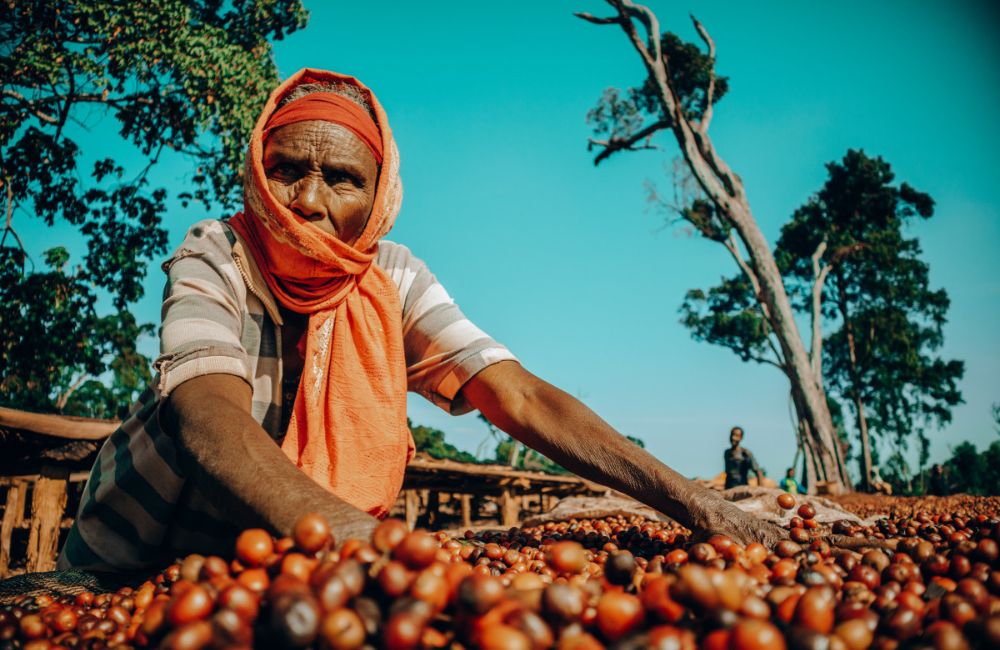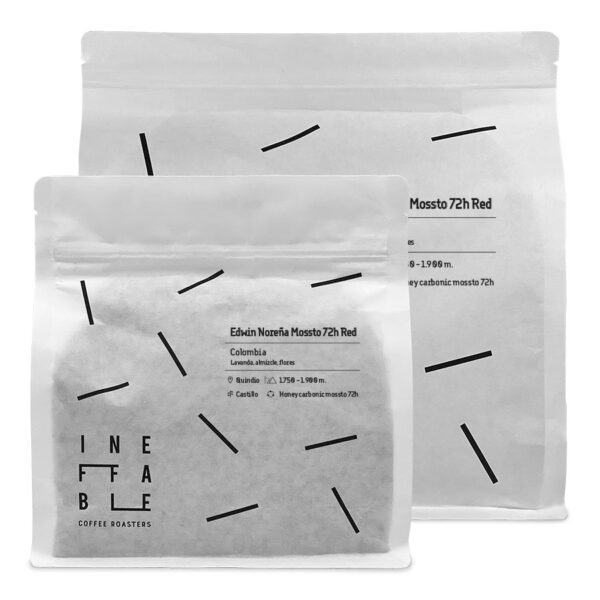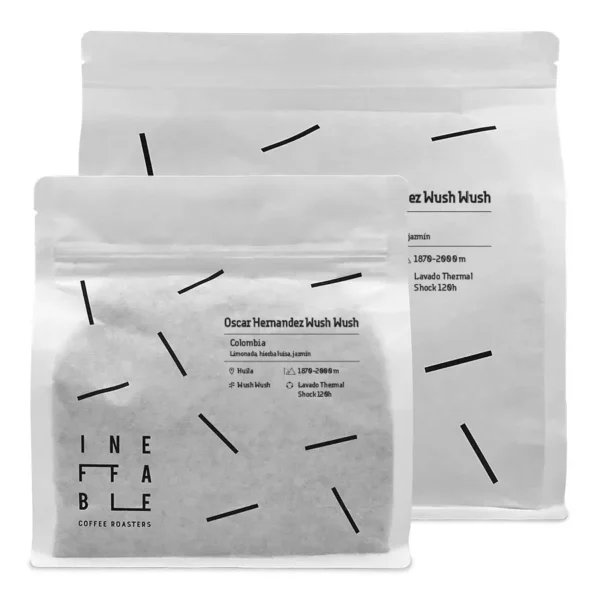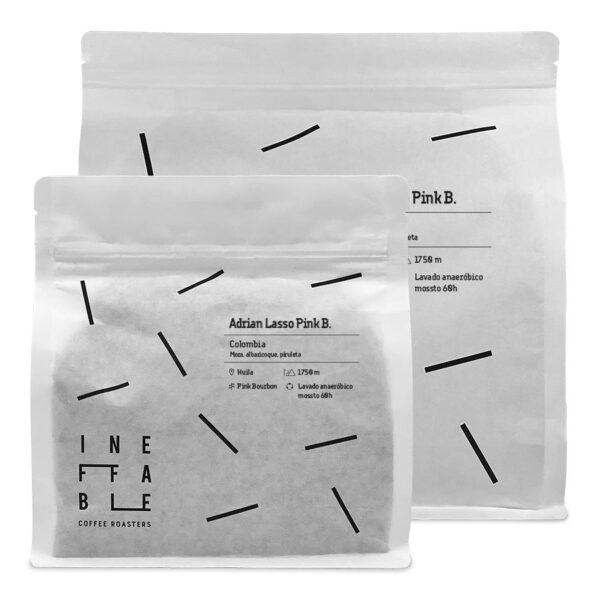Ethiopian coffee is not just another product; it is a journey to the roots of history, culture and the diversity of flavors that define specialty coffee. Considered as the cradle of Arabica coffee, Ethiopia offers a range of unique experiences that delight coffee lovers around the world. Its importance lies not only in its flavor, but also in its role as an economic and cultural engine, making Ethiopian coffee a fundamental pillar in the lives of millions of people.
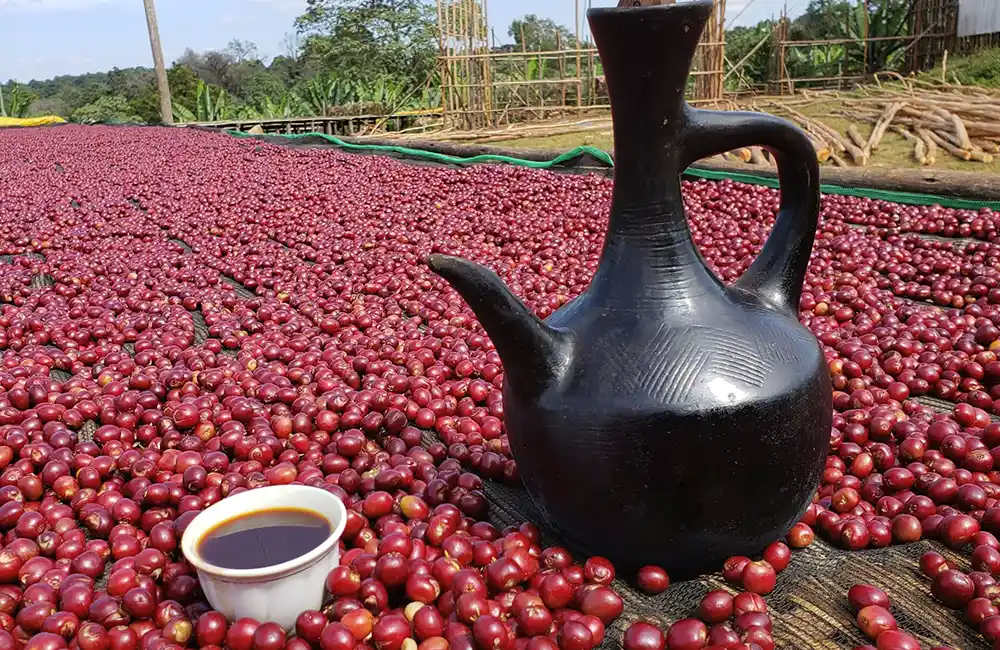
Ethiopian coffee has a long and deep-rooted history.
The history of coffee in Ethiopia goes back centuries. According to legend, coffee was discovered by Kaldi, an Ethiopian goat herder, around 800 A.D. Kaldi noticed that his goats behaved strangely energetic after eating berries from a tree. After sharing his discovery with some monks, they began using the berries to prepare an infusion that helped them stay awake during their nightly prayers.
Although this story is more myth than reality, Arabica coffee has its origins in the highlands of Kaffa, a region in the southwest of Ethiopia. From there, coffee spread to Yemen, where it became popular as a beverage, and later to the Arab world and Europe.
This expansion not only led to the creation of new consumption traditions, but also to the establishment of a global trade that forever changed the history of agriculture and economics.
2. Economic Impact of Coffee in Ethiopia
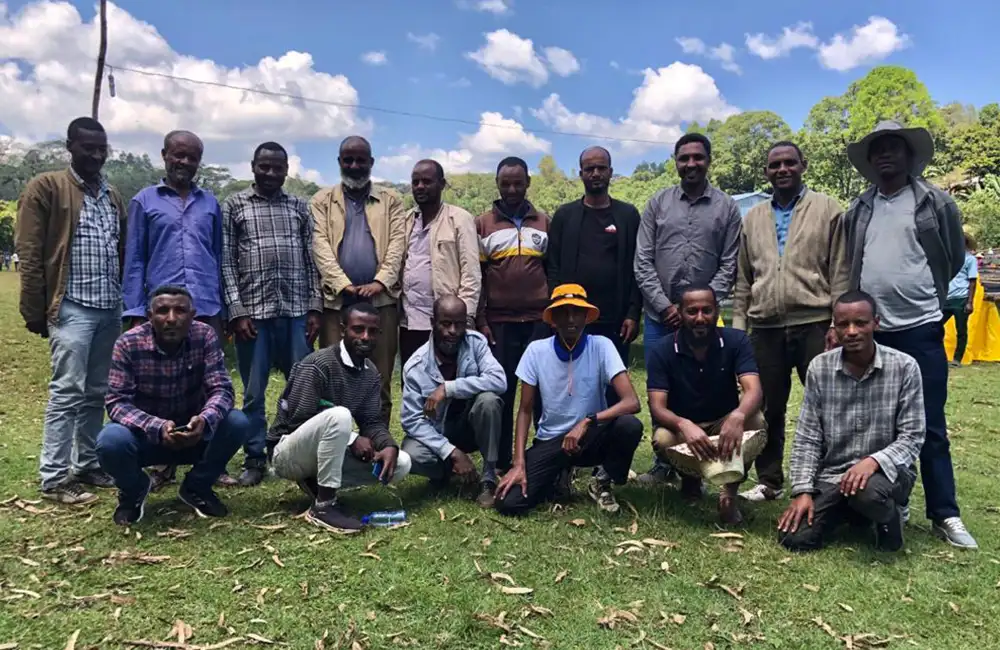
Small specialty coffee producers in Ethiopia
Coffee is the cornerstone of the Ethiopian economy. It accounts for 30-35% of the country’s foreign income, and more than 15 million people depend directly on its production. Coffee exports also generate 10% of government revenues.
Coffee also plays a crucial role in local economies, as the income generated circulates within communities, financing schools, infrastructure and basic services. In addition, local consumption is exceptionally high: more than 50% of the coffee produced is enjoyed in the country itself, reinforcing its cultural and social importance.
In recent years, initiatives such as the Ethiopia Commodity Exchange (ECX) have helped coffee farmers obtain fair prices, improving their living conditions and promoting sustainability in the industry.
3. Why is so much and so good coffee grown in Ethiopia?

Ethiopia has the ideal conditions for specialty coffee cultivation
Ideal climate and conditions
Ethiopia is positioned as one of the main coffee producing regions in the world thanks to its diverse geography and exceptional climatic conditions. The altitude of the coffee growing regions, ranging from 1,400 to 2,300 meters above sea level, provides the perfect environment for the cultivation of Arabica coffee.
Altitude: High altitudes allow the coffee plants to grow more slowly, which favors the concentration of sugars and nutrients in the beans, producing more complex flavor profiles.
Climate: Moderate daytime temperatures and cool nights generate ideal conditions for the uniform development of coffee cherries.
Soil: The volcanic soils, rich in nutrients, ensure that the coffee plants receive the minerals essential for healthy growth.
Genetic and natural diversity
Ethiopia is the home of Arabica coffee and has a unique genetic diversity. This natural richness means that there are hundreds of native varieties growing in their natural or semi-wild state. These varieties not only produce unique flavors, but also offer natural resistance to certain pests and diseases.
Sustainable traditional practices
Coffee in Ethiopia is often grown under shade in mixed farming systems, where coffee trees coexist with other trees and crops. This method, in addition to protecting biodiversity, promotes sustainability by maintaining the balance of the local ecosystem. In addition, most of the coffee is grown without pesticides or chemical fertilizers.
Together, these factors have positioned Ethiopia as one of the world’s leading specialty coffee producers, known not only for its exceptional quality, but also for the unique flavor profiles that delight global consumers.
4. Main regions where coffee is grown in Ethiopia
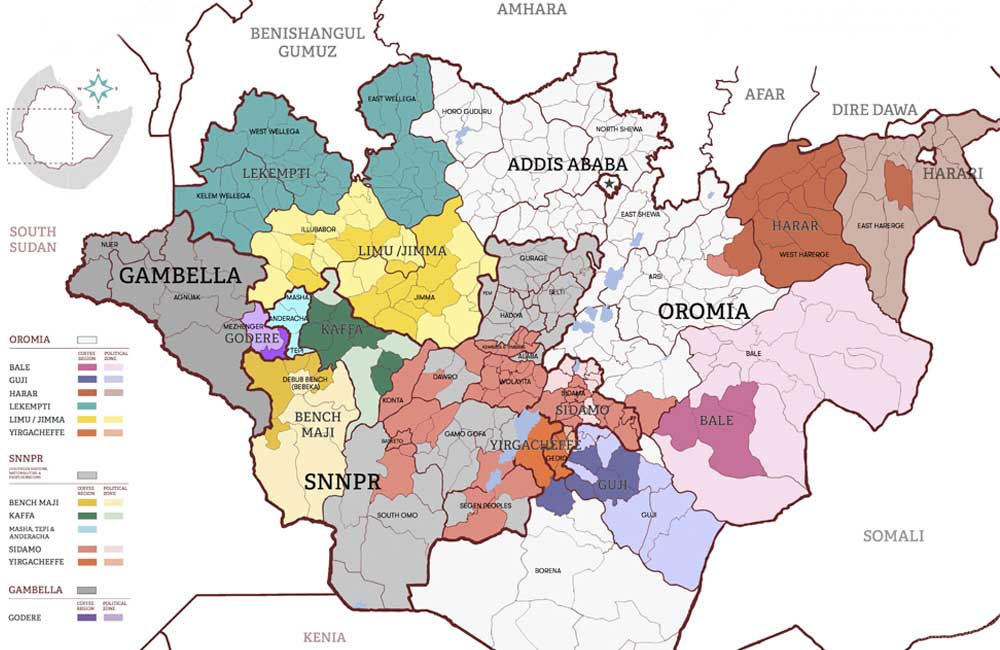
Main coffee growing areas in ethiopia
Ethiopia has a geographic and climatic diversity that translates into unique flavor profiles depending on the region where the coffee is grown. The main coffee growing regions are:
Sidamo
Altitude: 1,500-2,200 meters above sea level.
Climate: Cool and humid.
Taste: Notes of citrus fruits, berries and a bright acidity.
Specialty: It is one of the oldest coffee growing regions, known for its sustainable production.
Yirgacheffe
Altitude: 1,700-2,200 meters above sea level.
Climate: Mild and balanced.
Flavor: Washed coffees with sweet and complex profiles, similar to tea.
Recognition: Considered one of the best coffee regions in the world for the clarity and sweetness of its beans.
Harar
Altitude: 1,400-2,000 meters above sea level.
Climate: Dry.
Flavor: Fruity and vinous notes with full body.
Distinction: Known for its naturally processed beans, which offer a unique profile.
Kaffa
Altitude: 1,400-2,100 meters above sea level.
Climate: Humid and forest.
Flavor: Wild coffees with herbaceous and spicy notes.
Legacy: It is the place of origin of arabica coffee and still hosts wild coffee trees.
Guji
Altitude: 1,800-2,300 meters above sea level.
Climate: Ideal for specialty coffee.
Flavor: Notes of red fruits, jasmine and honey.
Innovation: Known for its pioneering processing techniques such as anaerobic fermentation.
These regions not only stand out for the quality of their coffees, but also for the profound knowledge of the coffee growers, who have perfected their techniques for generations.
5. Types of Ethiopian Coffee: Main Varieties
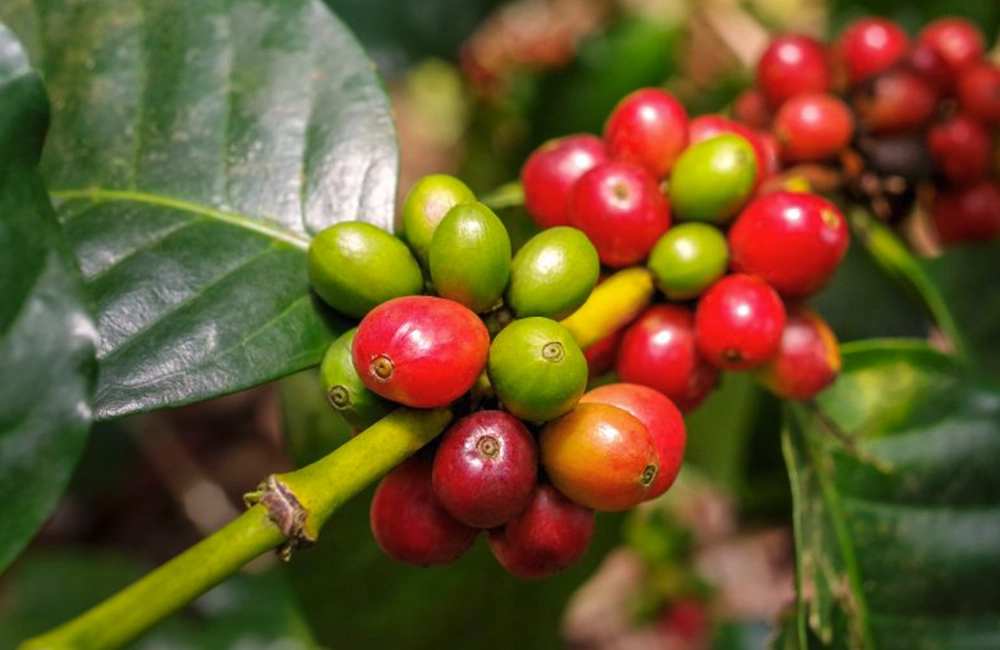
Coffee cherries in the ripening process
Ethiopia is known for the genetic diversity of its arabica coffee. The main varieties are:
Longberry: Large beans with complex profiles and high quality. They are highly valued for their versatility in the cup.
Shortberry: Smaller beans but valued for their flavor in Eastern Ethiopia. They tend to have bright acidity.
Mocha: Characterized by notes of chocolate, spice and citrus, especially in Harar Mocha. They offer a full body and intense flavors.
Heirloom: Traditional and wild variety with profiles ranging from floral to fruity. This category includes hundreds of native sub-varieties that bring a unique diversity to Ethiopian coffee.
This genetic diversity not only ensures a wide range of flavors, but also greater resistance to pests and diseases, making Ethiopian coffee an example of natural sustainability.
Enjoy our seasonal coffee, visit our store.
- Filter & EspressoCold BrewSpecial process
Edwin Noreña Red – Colombia – Mossto 72h Co-fermented
36,00€ – 132,00€ VAT included - Filter & Espresso
Oscar Hernandez Wush Wush – Colombia – Thermal Shock
36,00€ – 132,00€ VAT included - Filter & EspressoCold BrewSpecial process
Adrian Lasso Pink B. – Colombia – Washed anaerobic 60h
23,00€ – 84,00€ VAT included
6. Methods of cultivation and processing of coffee in Ethiopia
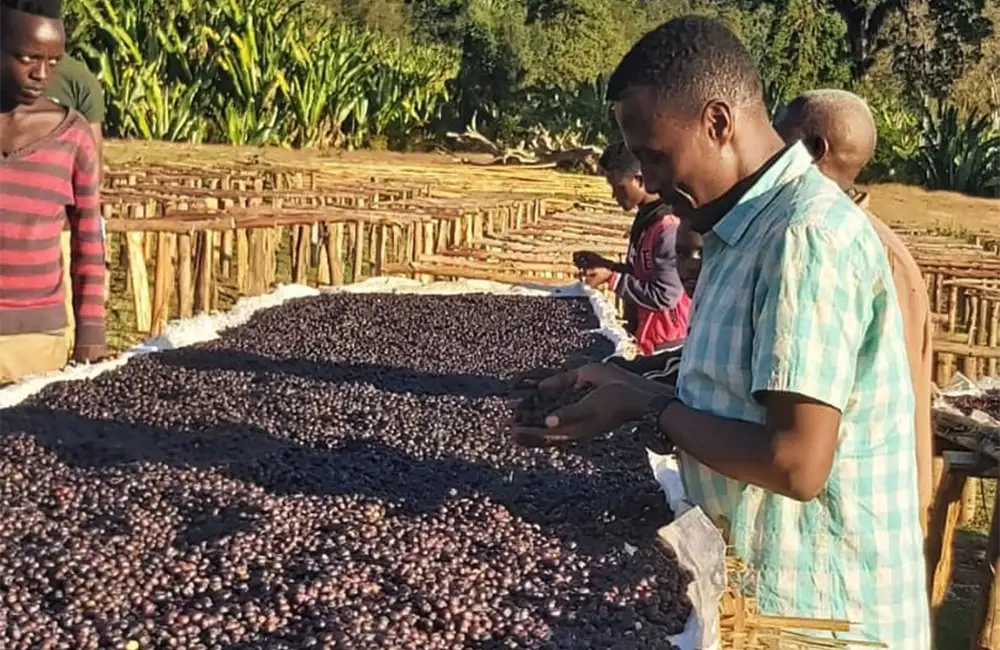
Coffee processing in Ethiopia
In Ethiopia a variety of cultivation and processing methods are employed, which directly influence the flavors and aromas of the coffees:
Cultivation
Organic and traditional cultivation predominates, without the use of pesticides or chemical fertilizers.
The coffee trees are usually grown under natural shade, favoring biodiversity and protecting the soil from erosion.
Processing
Washing: A process that highlights the acidity and clarity of the flavors. Common in Yirgacheffe and Sidamo.
Natural: Sun-drying of cherries, adding body and fruity notes. Common in Harar and Guji.
Anaerobic fermentation: An innovative technique that is gaining popularity, especially in Guji, for its ability to develop unique and complex profiles.
Honey: An intermediate method between washed and natural, which is being adopted by some washing stations to experiment with new flavors.
7. Ethiopian specialty coffee harvesting season

Women harvesting specialty coffee in Ethiopia
Harvest season varies according to the region:
Low regions: October to December.
Middle and high altitudes: November to February.
Coffee cherries are harvested by hand and undergo strict quality controls before being processed.
This artisanal approach ensures that only ripe cherries enter the production process, maintaining high quality standards in the final product.
8. Main coffee growers and coffee cooperatives in Ethiopia
Ethiopia has a rich coffee-growing tradition, supported by cooperatives and outstanding producers:
Tesfaye Bekele (Suke Quto): Pioneer in Guji forest regeneration and specialty coffee. His sustainable approach has inspired numerous communities.
Idido Cooperative: Groups coffee farmers in Yirgacheffe with a focus on quality. Its exclusive lots are highly valued on the international market.
Ethiopia Commodity Exchange (ECX): Facilitates fair trade coffee and standardizes quality. Although it has improved prices for farmers, it has also generated debates on the traceability of lots.
9. Curiosities about Ethiopia’s specialty coffee
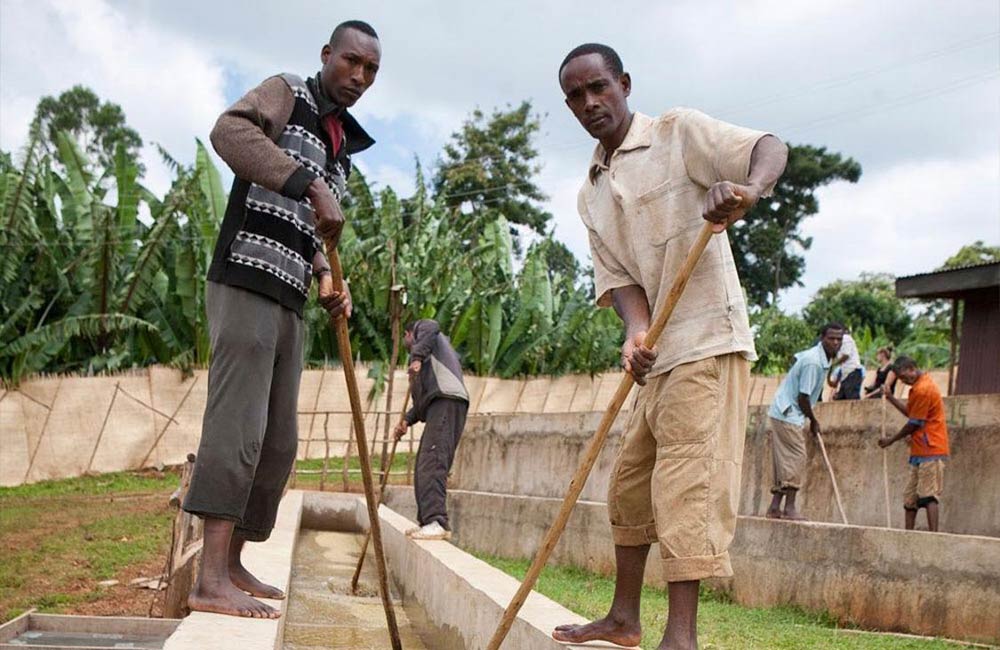
Specialty coffee processing in Ethiopia
What is the best Ethiopian coffee? It depends on taste, but Yirgacheffe is often considered the best for its sweet and floral notes.
What is the most expensive coffee in Ethiopia? Exclusive batches of Sidamo and Guji, processed with innovative techniques, can fetch very high prices.
Local consumption: More than 50% of the coffee produced is consumed within the country, making coffee a daily ritual.
Culture: Ethiopia has a tradition of coffee tourism, with coffee ceremonies that show its cultural and spiritual connection with the beverage.
Ethiopian coffee is not just a beverage; it’s a story that connects tradition, flavor, and community. Each cup is a tribute to the hands that cultivate and process one of the finest coffees in the world.
At Ineffable Coffee, we source, cup, and select the best specialty coffees from Ethiopia to offer you high-quality, fresh, and seasonal coffee.

